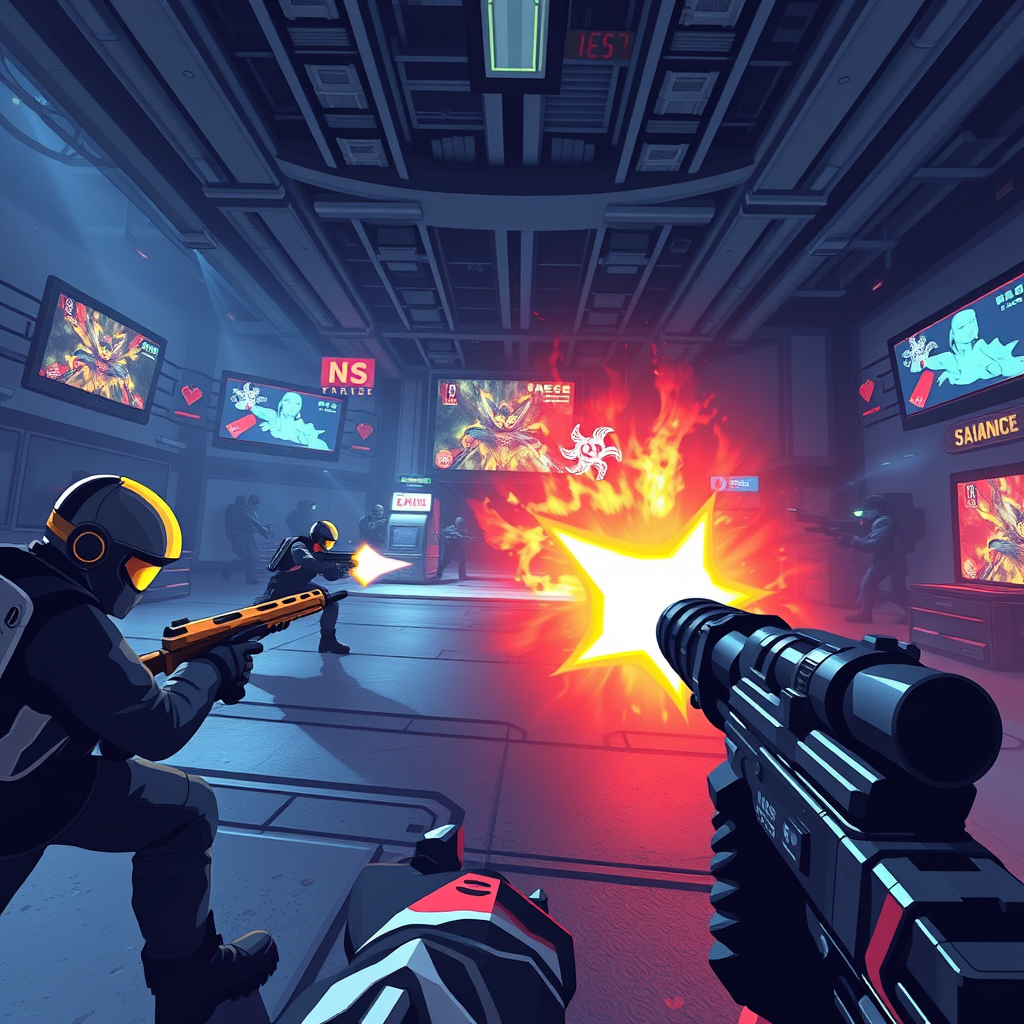
Arena Shooter Games: The Skill Playground
Arena shooters—Quake, Unreal Tournament, Diabotical—are pure skill tests. No persistent upgrades, no pay-to-win elements: your speed, accuracy, and knowledge decide everything. Maps are compact and vertical, weapons respawn on timers, and power-ups determine momentum.
Unlike the campaign-driven “good shooter games” or sprawling modern combat games, arena shooters focus on fair competition and repeatable improvement.
What Makes Computer Shooter Games Timeless
Old-school computer shooter games like Doom, Quake, or even open-source classics teach fundamentals—bunny hopping, strafing, resource control—that translate directly to modern esports shooters. Playing these now, with friends or in retro tournaments, is still the fastest way to build crosshair discipline and map sense.
Good Shooter Games vs. Arena-Style
A “good shooter game” means different things to different people: it could be something with tactical pace (like Counter-Strike), or a respawn-fest with arcadey mechanics. Arena shooters, by contrast, are about minimal RNG, tight game loops, and self-improvement through practice.
If you like instant respawn, lightning-fast movement, and a fair “duelist’s playground,” arena shooters are the best training ground.
Pro Tricks to Dominate Arena Shooters
- Map Control: Know the quad damage, armor, and rocket spawn timings by heart. Deny enemies these pickups even if you don’t need them—starving opponents is as important as fragging.
- Movement Skills: Practice circle-jumping and bunny hopping to maintain speed. Never run in straight lines: strafe unpredictably and learn to dodge midair.
- Weapon Priority: Master all weapon types, but especially the rocket launcher, railgun, and shotgun equivalents. Know which to switch to at every distance.
- Aim Drills: Play five minutes of flick aim and tracking drills before matches. Crosshair placement should always be where you expect enemies, not centered on the screen.
- Sound Cues: Arena shooters have unique audio signatures for armor and weapon pickups; use them for ambushes and rotations.
Why Arena Shooters Still Matter
With big games returning to classic eras (see Quake Champions, Halo Infinite’s Arena mode), these skills don’t just help in old games—they’ll give you an edge in every shooter that values prime mechanics and timing.
Build AI Games on Jabali
- No-code creation: Turn a simple prompt into a playable game in minutes, no coding or art background needed.
- Genre jumpstart: Launch fast with templates for maze shooters, dungeon crawlers, character sims, interactive stories and much more.
- Tweak everything: Upload assets, music, change character personalities and much more.
- Instant playtesting: One click to test, iterate, and balance! What you change is what you play.
- One-link sharing: Share a web link that works on desktop and mobile—no installs, just play.
- Creator-first: Great for solo devs, writers, educators, and studios prototyping new ideas quickly.
FAQs
Q: Are arena shooters harder than modern military shooters?
A: They have a steeper mechanical curve, but reward steady practice over long sessions.
Q: What’s the best free arena shooter right now?
A: Diabotical and Quake Champions are excellent, fast, and have healthy communities.
Q: Do these tips apply to battle royale?
A: Yes—map knowledge, movement, and aim are core to every competitive shooter.